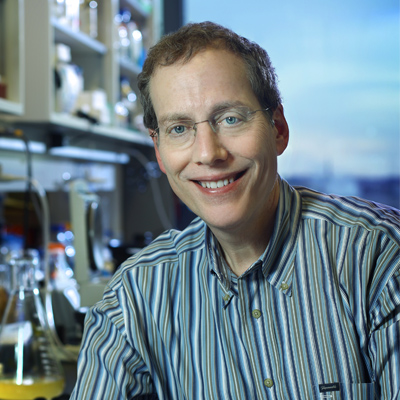Understanding how genetics and the environment conspire to cause disease
80% of disease is caused by the environment surrounding us. Therefore, the key to understanding genetic risk is understanding the relationship between genes and the environment. Dr. Andrew Feinberg, Gilman Scholar and Professor of Medicine at Johns Hopkins University, Molecular Biology, Genetics, and Oncology, and Director of the the Center for Epigenetics, studies the environment and the genome to understand the relationship between ourselves, the world we live in, and disease. While most genetics labs focus on DNA sequence, or the genome’s alphabet, Dr. Feinberg studies epigenetics, the genome’s grammar. His team is developing methods to understand the epigenetic code, which incorporates the genetic code, environmental exposure, and chance, in order to better understand the causes and prevention of common diseases such as cancer, autoimmune disorders, and diabetes.
Moreover, while it is difficult to change the structure of our DNA, epigenetic changes to genes are potentially reversible. Dr. Feinberg and his team hope to develop drugs that change the behavior of genes and offer novel approaches to disease prevention and therapy. The Center for Epigenetics include geneticists, engineers, epidemiologists, clinical investigators, biochemists, cell biologists, physicists and computer scientists. Through the the NIH Director’s Pioneer Award Program, Dr. Feinberg is also pursuing a mathematical approach to understand in a rigorous way previously applied to physics, the relationship between genes, the environment, and chance, in shaping normal tissue development, and how that process goes awry in common human disease.
Current research includes:
-
Cancer: Dr. Feinberg’s research on cancer relies upon the fact that “cancer is in part a mathematical disease.” His lab wants to create epigenetic tests to help identify who will develop cancer even before it arises. Such an approach would decrease the chance of developing the disease at an early stage or even preventing it. Furthermore, Dr. Feinberg is trying to identify drugs that might target how genes function in order to make tumor cells, even metastases, behave less malignantly.
-
Psychiatric Disease: Dr. Feinberg is applying epigenetic principles to psychiatric diseases, including schizophrenia and autism. He and his team recently identified a DNA methylation change in the sperm of fathers of children with autistic symptoms in a high risk cohort.
-
Human Disease Model Organisms: It is very expensive and difficult to study large groups of people and their corresponding environmental exposures. Dr. Feinberg is using mouse models in hopes of creating methods to study the epigenetic cause of human disease in large populations in a more cost effective way. He and his team have already made some significant progress in understanding diet-related obesity using this approach.
-
Aging: Aging appears to involve epigenetic mechanisms as well. Dr. Feinberg’s team recently discovered a widespread epigenetic defect in aging cells of the skin, particularly related to the degree of solar radiation exposure. He is testing the idea that aging might be prevented pharmacologically or even reversed.
-
Addressing Chance: Dr. Feinberg’s group is attempting to define a mathematical language for the genome that addresses chance. They think that some of the difference from person to person and even from cell to cell might be a normally regulated process of randomness that increases fitness in evolution, but also promotes survival in the highly changing environment in which we live. Remarkably, some of the same language of physics developed 100 years ago to understand the uncertainty of atomic structure is relevant to understanding the biological processes of variability in the cell.
-
Epigenetics in Space: The lab is participating in a study of two astronauts who are identical twins. One twin is orbiting the earth for a year, in a well-defined environment (the International Space Station), and the lab is analyzing samples--sent from space--to study epigenetic changes over time that may revert to normal on return to earth, to better understand how our genome reacts to long-term space flight.

Bio
Dr. Feinberg was led to research by a “consuming curiosity and desire to make discoveries that will abate premature death and misery.” He was immersed in math at a very young age with pencil and paper by his late father and brother, and in biology and physics with visits to the Franklin Institute in Philadelphia by a favorite aunt. He studied math at Cornell while still in high school, and was the youngest intern at IBM’s Watson Research Center. At Yale, he studied humanities and science in the Directed Studies honors program and entered Johns Hopkins Medical School in his teens to become a physician scientist. He did postdoctoral work in developmental biology and genetics and was a Howard Hughes investigator at University of Michigan before returning to Hopkins as a professor in 1994. He pioneered the field of cancer epigenetics, and later the epigenomics of common human disease through the first NIH-funded Center for Epigenetics. He has returned to his mathematical roots upon receiving the Pioneer Award. His other interests include choral singing and diving.
Website: epigenetics.jhu.edu


